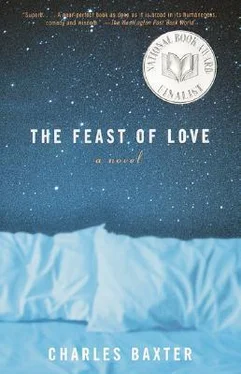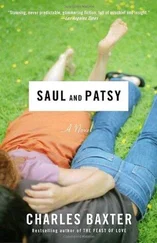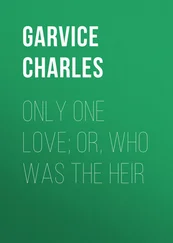“You made that coffee yet?” he asked.
“Not yet. I thought you could brew it yourself.”
“Why don’t you do that right now? And go to hell, if it’s no trouble, while you’re at it.”
“This coarse language isn’t like you, David.”
He turned around and gave me the display: he held his arms out operatically, and I was still so in love with him at that moment, I realized, so fevered, and I hated that. “Don’t get fastidious with me. What am I like, Diana? What am I like? What do I do? Go ahead. Tell me, if you’re so sure, if you’re the expert on me. What am I, besides your friend, and the man who makes love to you when we can both arrange it? Diana, I’m the guy who looks out for you. Who else does that?” He was getting angry all over again. He was re-angering himself. “Who else really does that for you? Nobody. I think I’ll go outside, right this minute if you don’t mind. If I don’t, I’ll make a mess of you, I’ll give you a shiner. And then what will the neighbors think? Why don’t you make that coffee for me, while I’m outside?”
“You’re not dressed.”
“I have my shorts on. Besides, do you think I give a flying fuck about the neighbors?”
He crossed the kitchen, past the vase where his cut flowers — gladioli this time — were arranged on the breakfast table, there in the alcove, and then he stomped out toward the back entryway. As quickly as I could, I put on a bathrobe and ran out to see where he’d gone. I couldn’t see him. In the living room, the CD player, rotating its carousel selections, had gotten around to the Miles Davis we had carefully timed for background to postcoital murmuring, Sketches of Spain. But no David in sight.
I put my face to the window and tried to see him. Oddly, for a moment Bradley’s word desolation returned to me as I raised my hand to the side of my face and stared out into the darkness. Night birds and crickets chirped away madly.
The house I own is a large one, and I have an ample front yard with azaleas planted on the north side, and when I put my hands to the sides of my head to blank out the light, I could see him squatting in the back under a tree, in his underwear, pulling out random clumps of grass with his right hand as he swigged at a beer, which he must have found somewhere in the refrigerator. He was talking to himself, a novelty David-thing, absolutely new and unseen before by me, though I couldn’t be absolutely sure what he was doing in that dim light aside from being actively upset with me. The face, though, was the classic male crying face even if there happened to be no tears on it. The son of a bitch loved me, and he had never told me about it. He was so rigorous.
He dropped the beer can and the grass he had pulled out and started to walk toward the garage. When he came around to the front again, he was buck naked. In his grief he had taken off his boxer shorts. God knows what he did with them. Thrown them up into a tree, maybe. He was in a state of erotic semicomic despair. At last he had well and truly surprised me. I was dumbstruck, and I was thinking of the nearest phone, but all David did was to come inside and return to the bedroom and slowly and almost shyly put on his beautifully tailored clothes, item by item, carefully, though of course without the boxer shorts. I wondered what he would tell his wife about their absence, but maybe she would be asleep when he came in, oblivious in her dreams. Maybe she never noticed what he wore. He attached his cuff links: David. If he lost his composure quickly and violently, he recovered it just as quickly. There’s that particular man for you.
I had followed him into the room. My face stung. “David,” I said. “This doesn’t mean —”
“ — You shouldn’t marry someone you don’t love,” he said, his back to me. “Oh sweetie, it’s a soul-error.” He waited. He stared at the dragon drawing on my dresser mirror. “Yeah, and see if I’m right. Hey, where’s that famous coffee of yours? The cup I asked for? Again and again and again? You never made it, did you? You couldn’t bring yourself to do that, could you, for my sake? That little thing. Well, too late now.”
And those were the last words I heard from him until after Bradley and I were married, when David and I started up our relationship once more. I was the one who called him. I was the initiator. Then he called me. Before too long, we were back to where we were before, slamming each other around. By anyone’s standards, I suppose, I’m bad and ill-tempered, but David matches me in that and it’s why we were so compatible. We go about our hypocrisy with aplomb. And we’re complacent, too, mostly about what we have and what we can get. He is my other. But, you know, these are the cards I was dealt, and that’s the way I played my hand, and I don’t much care what you think.
BECAUSE THE NEXT MORNING was a Saturday, and my Esther was sleeping at last, perhaps only for a few minutes, the tossing-and-turning kind of sleep, I rolled quietly off my side of the bed and took a shower. I took care not to drop the bar of soap. I shaved my face (my features are porcine, coarse, and bristly — I have a snout like a wild boar, and yet, I think, I am handsome), not looking into my own eyes, avoiding self-commentary on the bags underneath them. I cooked some oatmeal for myself and then fed the goldfish, Julius and Ethel.
I went into my study and pulled out the checkbook from the desk drawer. I am familiar with clutter, with the diffusion of philosophy into papers and bookmarks and the scatterings of thought. I wrote out a check to the order of my son Aaron Ginsberg (it was not for as much as he had asked). And then I realized: no no no, I cannot send the boy a check with my bank account number on it. He is wily, he and his strange dangerous friends. They will find a way of ordering the bank to send them all the money in my account. I do not know how they will do this, but they will know. These children of ours have befriended computers, and the terrible dangerous computers will help them help themselves.
So I therefore drove, this bright sunny morning, to the branch bank that kept its offices open on Saturday. By this time it was nine o’clock, by the official clocks. The sun shone its burning rays on the landscapes of my life, the real world that made Plato so unhappy. My bank teller’s name was Theresa. I seem to remember that she wore glasses. I was beyond having any certain opinions on her appearance, however, this girl, her beauty or lack of it. Perhaps she belonged to somebody, in the amorous way of things. Perhaps she gave off an odor of lilac. What was that to me? What, may I ask, was the odor of sachet of lilac from a bank teller to me that morning? We were in separate galaxies. We were lit by separate lights and we cast separate shadows. I was managing a catastrophe, and she was working as a clerk in a bank.
Theresa, I said when I reached her window, my throat dry, I need a cashier’s check made out to my son, Aaron Ginsberg. It must come from my savings. I handed the passbook and the withdrawal slip to her, and she checked my balance and quickly typed up the check on a machine. Thank you, I said. She must have smiled, such people do all the time, after all, but I must confess that it made no impression on me. I returned to my Ford car and drove home.
Back in my study I wrote a brief note to my son, asking for… asking for what? For his assurance that he would spend it wisely? We were beyond such tender father-son messages. (A maddening tune was going through my head, “Twentieth-Century Blues.”) I asked my son Aaron not to make good on his threat to end his life. On my desk was a picture of him, smiling into the white-cotton sunshine on a tennis court, on a singular day when he was healthy and happy.
Читать дальше
Конец ознакомительного отрывка
Купить книгу












